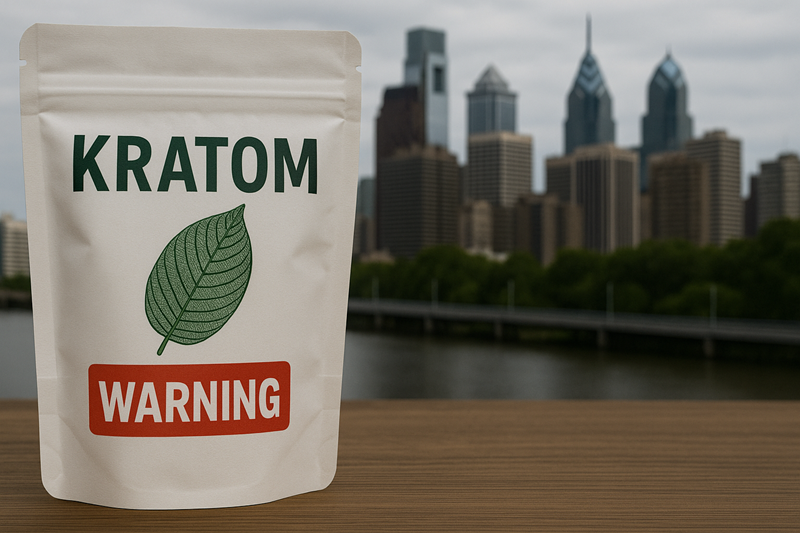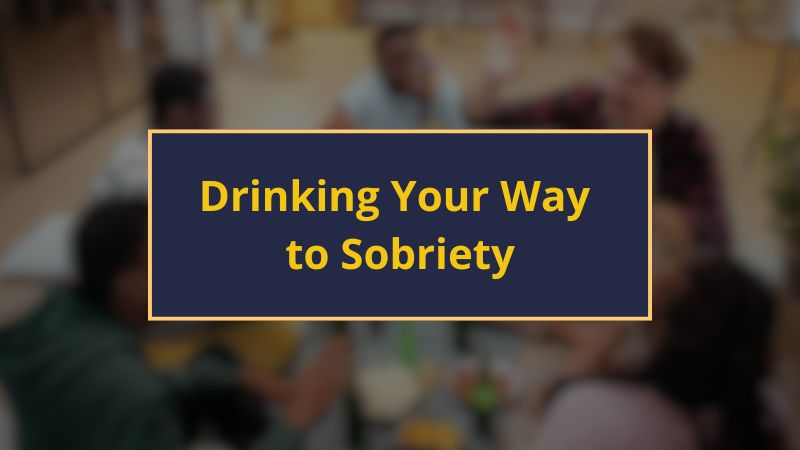A quiet threat is growing in Philadelphia. It’s sold in bright packages and marketed as a harmless herbal pick-me-up. Behind its “natural” image lies a drug that can be just as dangerous as opioids.
Kratom is a plant-based substance that has been making its way into smoke shops, wellness stores, and even convenience counters across Philadelphia. Marketed as a “natural” energy booster or pain reliever, kratom acts on the brain’s opioid receptors, meaning it can be addictive and dangerous despite its legal status.
Lately, kratom has captured headlines, including extensive coverage in The Philadelphia Inquirer, CBS News, 6ABC News, and Philly Voice, as local health experts and families grapple with the dangers of this herbal supplement.
The Pennsylvania Department of Health issued a statewide advisory in August 2025 warning that calls to poison centers about kratom and its potent concentrate 77-OH have sharply increased, highlighting significant health risks.
Kratom side effects may include:
- nausea
- vomiting
- skin discoloration
- severe illness
- opioid-like toxicity
- dependency
The growing media spotlight and public health concerns confront a troubling reality: kratom, despite its “natural” reputation, poses serious risks for users in Philadelphia.
Health Dangers in Our City
For Philadelphians, the threat from kratom is immediate and unique. Medical professionals in the region report that kratom has been linked to at least four deaths locally, and its use is often undetected because most physicians don’t know to ask about it. Many users see kratom as harmless, but the evidence tells another story:
- Overdose and Death: Kratom was the only substance found in several fatal cases in the Philadelphia area, defying claims that it’s a “safe” herbal remedy. The Centers for Disease Control found 91 overdose deaths in the U.S. directly tied to kratom, with several concentrated in Pennsylvania.
- Substance Use Disorder Risk: Medical authorities, including the FDA, warn that kratom’s active ingredient acts on the brain’s opioid receptors, meaning it can be addictive—just like other opioids.
- Unknown Potency and Contamination: Products sold in Philadelphia gas stations and smoke shops may contain dangerous contaminants. FDA tests found unsafe levels of lead and nickel, along with cases of salmonella, increasing the risk of chronic poisoning or acute infection, especially for frequent users.
- Liver Damage: Recent reviews highlight rare but serious instances of liver injury linked to kratom use, sometimes requiring hospitalization.
Legal Limbo and Easy Access
The lack of local and state regulation means kratom remains widely available across Philadelphia’s retail outlets and online. Without safety oversight, users have little protection from unpredictable doses and contaminated products.
The Philadelphia Perspective
Urban factors intensify these risks for Philadelphians. Easy retail access, high rates of opioid use, and an ongoing struggle with addiction caregiving combine to make kratom use especially perilous here. Emergency rooms and poison control centers are seeing more cases related to kratom’s side effects and withdrawal problems.
With kratom’s dangers increasingly making news, Philadelphians need to see past its “natural” marketing. For those considering kratom—whether for pain, mood, or opioid withdrawal—the risks now playing out in Philadelphia are real and growing. Community members should consult medical professionals for safer alternatives and be wary of the unregulated nature of this supplement.
To read more about local cases and what experts are saying, check out The Philadelphia Inquirer’s coverage of kratom-related deaths and health risks.
Resources for Philadelphians Concerned About Kratom
If you are worried about kratom use for yourself, family, or friends, here is a list of reliable resources offering information, support, and treatment options specifically for Philadelphians:
Recovery support. If you have concerns about kratom or need support, you can reach out to Community Behavioral Health (CBH) Member Services at 888-545-2600, help is available 24/7 to guide Philadelphians to resources, treatment options, and confidential advice.
Philadelphia Poison Control Center. 24/7 emergency phone support for kratom exposures: 1-800-222-1222. Staffed by nurses, pharmacists, and medical toxicologists, they provide expert consultation and can advise on what to do in case of kratom-related illness or overdose.





